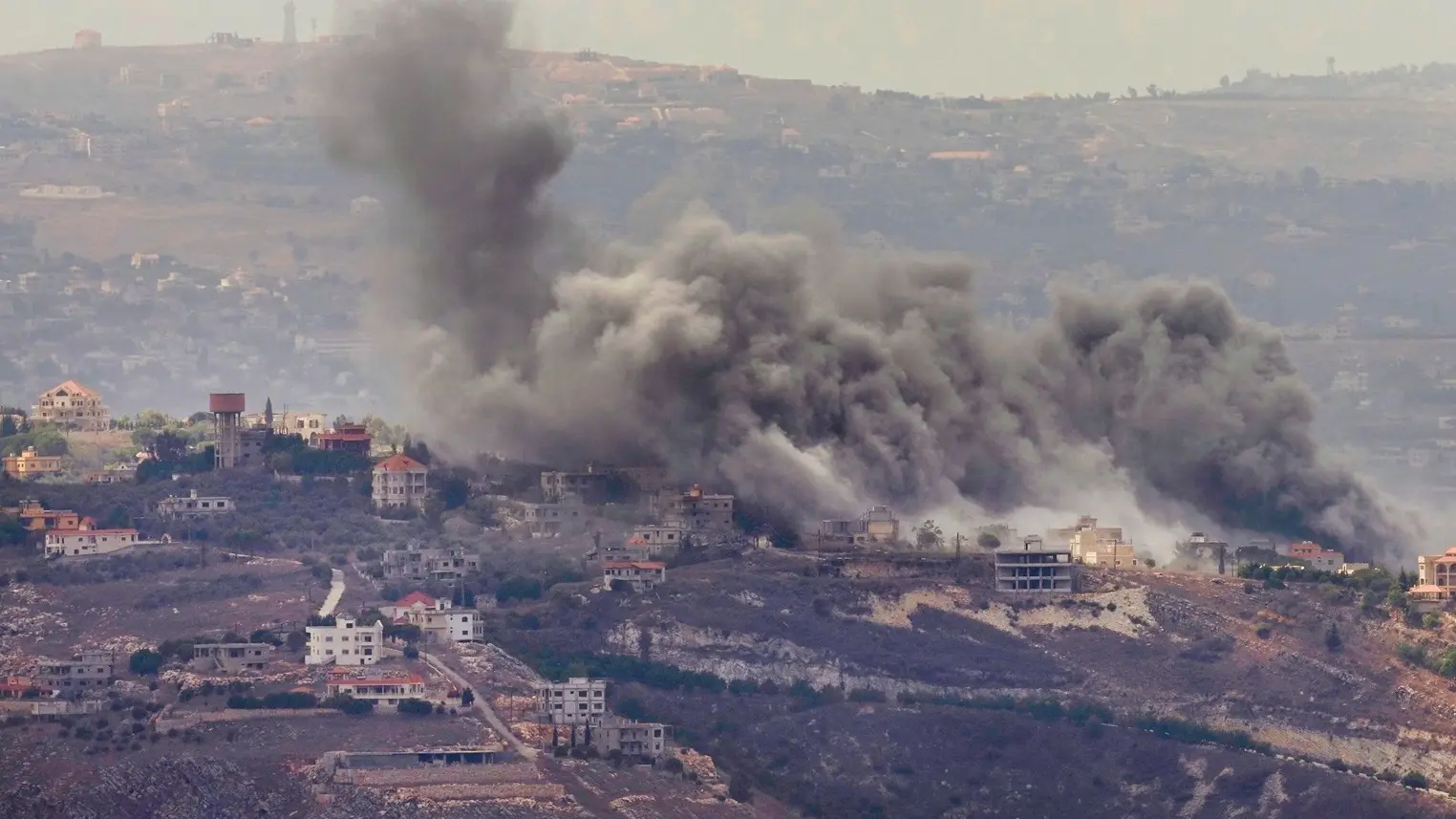An Israeli airstrike on Wednesday destroyed the municipal headquarters in Nabatieh, killing 16 people, including the mayor, several municipal council members, and Civil Defense personnel who were coordinating relief efforts. More than 50 others were wounded in the attack.
This marks the largest strike on an official Lebanese state building since Israel’s air campaign began, according to Reuters.
Nabatieh Governor Howaida Turk reported 11 strikes on the city and its surroundings. Emergency workers said the Israeli bombardment also destroyed a nearby medical facility, killing two doctors.
“The mayor of Nabatieh, among others… was martyred. It’s a massacre,” Turk told AFP.
On October 3, Israel issued an evacuation notice for Nabatieh, a city of tens of thousands, but Mayor Ahmed Kahil refused to leave, telling Reuters he would stay.
Lebanese officials condemned the attack, viewing it as a sign that Israel’s campaign against Hezbollah is now targeting the Lebanese state itself.
Caretaker Prime Minister Najib Mikati accused Israel of “intentionally targeting a meeting of the municipal council to discuss the city’s service and relief situation” aimed at helping those displaced by the conflict. Mikati condemned the attack as a new act of aggression against civilians in Nabatieh.
Israel claimed the strikes targeted “Hezbollah positions,” including “military buildings, headquarters, and munitions warehouses” allegedly placed near civilian structures.
However, no evidence was provided to support these claims, a justification that has been used in other attacks resulting in civilian casualties.
U.S. State Department spokesperson Matthew Miller declined to comment on the specifics of Israel’s strikes on Nabatieh but noted that the U.S. understands “Hezbollah operates from civilian areas and supports limited strikes targeting the group.”
“Obviously, we’d not want to see entire villages destroyed. We don’t want to see civilian homes destroyed,” Miller said.
“What we support are limited incursions to attack and degrade Hezbollah, to degrade Hezbollah infrastructure. Not to target civilians, not to destroy civilian homes, not to wipe villages out, we do support campaigns to take out Hezbollah.”
Just days earlier, Israeli strikes had destroyed Nabatieh’s main market, wounding at least eight people, according to Lebanon’s health ministry.
Israeli military reduces the historic town of Mhaibib to rubble
Videos surfaced on Wednesday showing Israeli forces dynamiting the entire village of Mhaibib in the Marjaayoun district of Nabatieh.
The Israeli army claimed to have “dismantled” a tunnel network used by Hezbollah’s elite Radwan Forces in the heart of the town, releasing a video that showed multiple explosions shaking a cluster of buildings, according to Reuters.
The Israeli military demolished this historic neighborhood, damaging structures over 2,100 years old, including a significant religious shrine.
Qassem Ahmed Jaber, the town’s mukhtar, expressed uncertainty about the extent of the destruction due to ongoing Israeli attacks and the evacuation of all residents in the area, as reported by Anadolu Agency.
Earlier in October, the Israeli military had warned residents of 26 towns in southern Lebanon, including Mhaibib, to evacuate, citing potential Hezbollah activity.
Israeli forces target UNIFIL watchtower in Kfar Kila
The U.N. mission in Lebanon (UNIFIL) reported that its peacekeepers witnessed an Israeli tank firing at their watchtower near Kfar Kila in southern Lebanon on Wednesday morning, resulting in the destruction of two cameras and damage to the tower.
There was no immediate response from the Israeli military regarding the UNIFIL statement.
Israel has previously urged the United Nations to relocate members of the UNIFIL peacekeeping force out of combat zones for their safety. UNIFIL has stated that its troops have faced Israeli attacks on several occasions, though Israel has disputed these accounts, according to Reuters.
Over the past year, Israeli operations in Lebanon have resulted in at least 2,350 fatalities, according to the health ministry, with more than 1.2 million people displaced. The U.N. reports that a quarter of the country is under evacuation orders.
Meanwhile, around 50 Israelis, including both soldiers and civilians, have died during the same period, according to Israeli sources.


